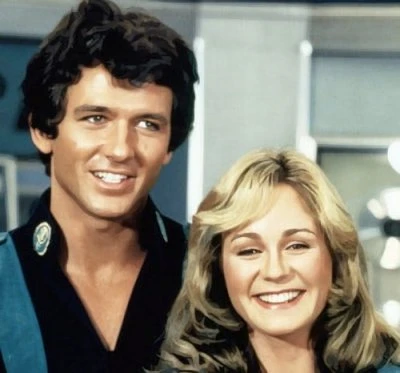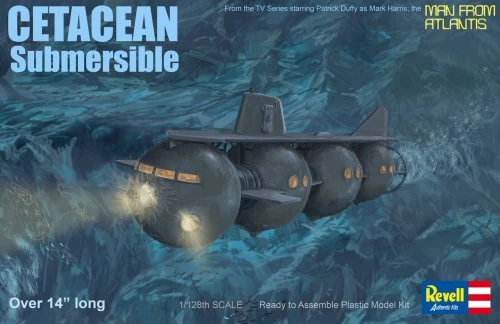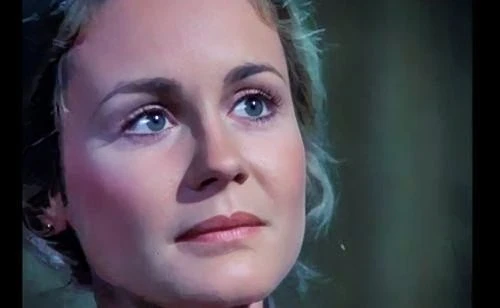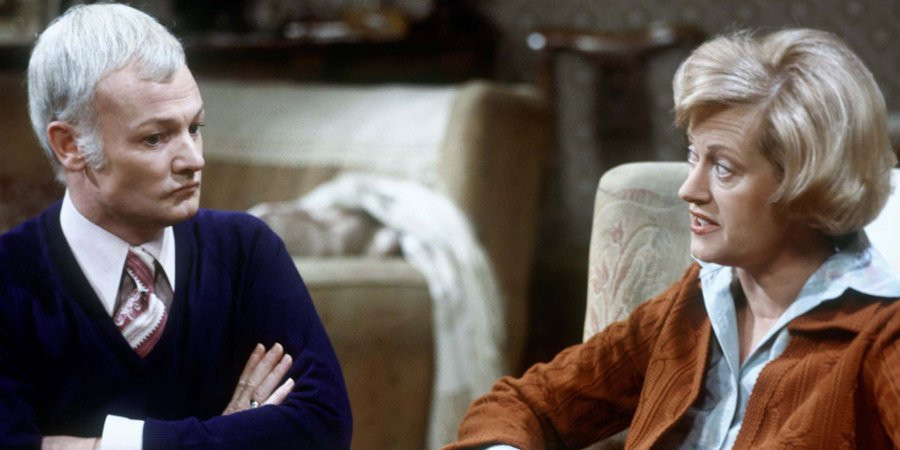
The Man from Atlantis
1977 - United StatesQuirky sci-fi which began by showing great potential, but ultimately drowned in the ratings.
Review by Laurence Marcus
In the late 1970s, The Man from Atlantis made a splash as a uniquely imaginative TV series that drew viewers into an aquatic world of mystery, adventure, and science fiction. Starring Patrick Duffy in his breakout role as the titular man from Atlantis, this series aired for just one season on NBC from 1977 to 1978. Despite its short run, The Man from Atlantis carved a niche for itself among fans of cult classic television, particularly those with an appetite for quirky sci-fi storytelling.
Duffy plays Mark Harris, the sole survivor of the lost civilization of Atlantis. Discovered washed ashore with no memory of his past, Mark possesses extraordinary abilities—he can breathe underwater, swim at incredible speeds, and withstand the pressures of the ocean depths. Mark's amphibious nature is highlighted by his webbed hands and feet, along with his distinctive swimming style, which was modelled after dolphins. These characteristics made Duffy’s character visually striking and immediately memorable, helping to set the tone for the underwater adventures that followed.

The series begins with Mark being rescued by a naval research team, and from there, the narrative takes off as he becomes an ally to Dr. Elizabeth Merrill (Belinda Montgomery), a marine biologist. Together, they join the Foundation for Oceanic Research, a government agency that conducts top secret research and explores the depths of the ocean in a sophisticated submarine, the Cetacean, encountering a wide variety of foes, from deep-sea creatures to otherworldly beings. One of the series' recurring villains is the nefarious Mr. Schubert (Victor Buono), a mad scientist with grandiose schemes to control the oceans and, by extension, the world.

Four standalone TV movies were made before The Man from Atlantis went to a full series, but it never captured the public’s imagination in the same way that the network hoped it would. The Washington Post's critic, Tom Shales, remarked in his review that "kids may be impressed" by the heroics and special effects, but the show lacked "adult appeal" and that the stories would "soon wear thinner than water". He was proved right.
While the show's premise is undeniably ambitious, its execution is often hampered by the limitations of 1970s television production. The underwater sequences, while effective for their time, now feel somewhat dated, and the special effects occasionally fall short of the series' imaginative aspirations. However, the retro charm of these elements is part of what has endeared The Man from Atlantis to fans over the years. It's a show that embraced the spirit of adventure, even when its reach sometimes exceeded its grasp.
One of the most compelling aspects of the series is its portrayal of Mark Harris as a “fish out of water”—both literally and figuratively. While Mark is an exceptional underwater being, he is often awkward and vulnerable on land, unfamiliar with human culture and social norms. This allowed Duffy to showcase a quiet vulnerability in his character, as Mark grappled with his lost identity and tried to find his place in the human world. The show occasionally touched on themes of isolation and belonging, making Mark more than just a superhero figure. Sadly, this search for connection and understanding never really resonated with audiences and failed to add the emotional depth required to offset some of the show’s more fantastical elements.

Occasionally it would break into pure sci-fi, with Mark swimming through portals in the ocean that led to other places and other time zones such as the 19th century wild west or 16th century Italy. As the storylines became more fantastical (some would say ‘sillier’), Belinda Montgomery, unhappy with the scripts, was released from her contract with the help of lawyers after 11 episodes. She could have stayed. After the 13th, the series was cancelled.

However, Patrick Duffy’s career would take an unexpected and unforgettable turn shortly after The Man from Atlantis ended. In 1978, he was cast as Bobby Ewing in the iconic prime-time soap opera Dallas. The success of Dallas far eclipsed his earlier role, and Duffy became a household name through his portrayal of the charming, morally grounded Ewing brother. But in a twist almost as extreme as his time on The Man from Atlantis, Duffy’s character was killed off in a dramatic season finale, only to return a year later in one of television’s most talked-about moments. After a year of absence, Bobby Ewing was resurrected in a now-infamous scene that has gone down in television folklore, drawing ironic parallels to Duffy’s earlier role as Mark Harris.
For those who enjoy quirky 1970s sci-fi, The Man from Atlantis offers a fascinating glimpse into a pre-CGI era of television, driven by a bold and imaginative although ultimately unrealised vision. And for Patrick Duffy fans, it serves as an intriguing precursor to his later stardom, where the man who emerged from the sea would once again make waves—this time, emerging from a shower!
Seen this show? How do you rate it?
Seen this show? How do you rate it?
Published on September 25th, 2024. Written by Laurence Marcus for Television Heaven.










